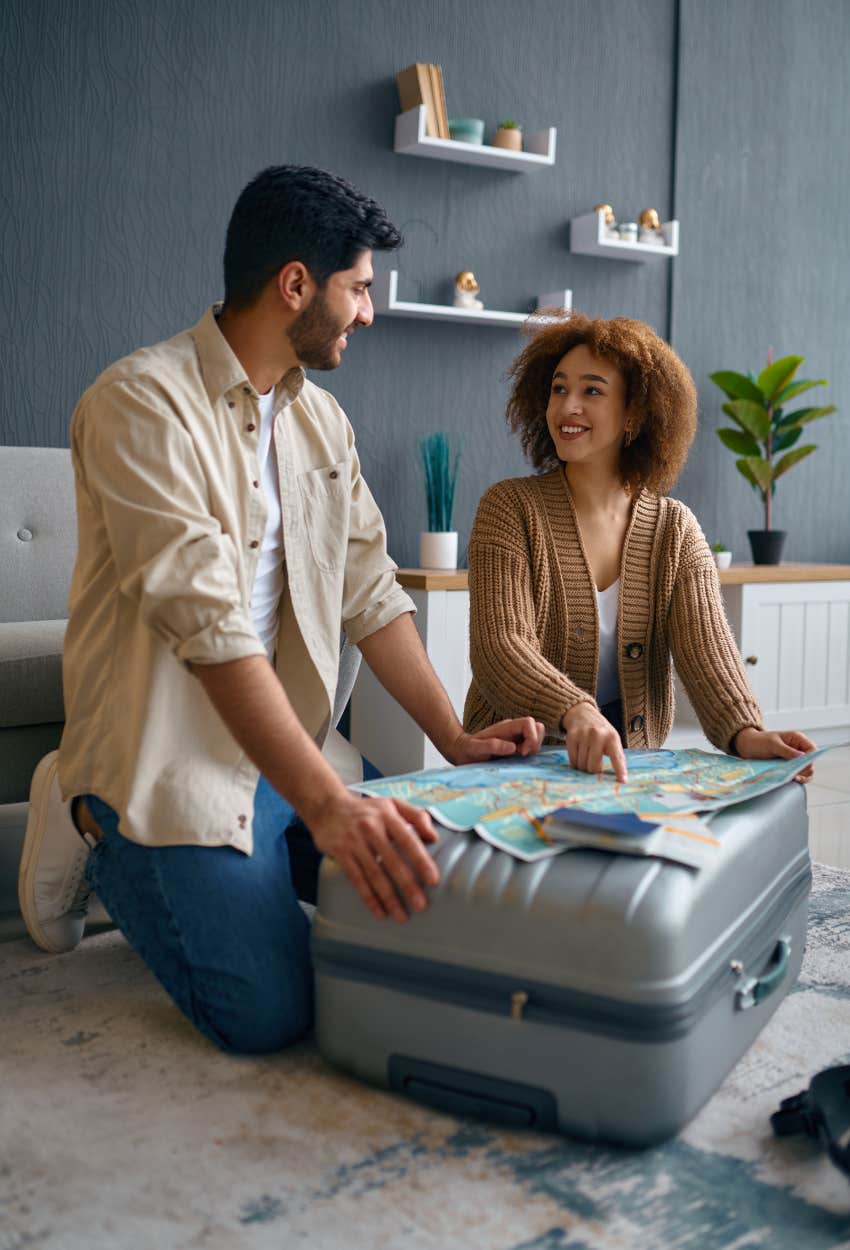Study Says Spending Your Money Won’t Make You Happy — Unless You Spend It On This
Maybe you can buy happiness...
 Study Says Spending Money Won’t Make You Happy Unless You Spend It On This
Study Says Spending Money Won’t Make You Happy Unless You Spend It On This We all fantasize about winning the lottery and the subsequent shopping spree that goes with it, but what buying a mansion on the beach and a new convertible didn't actually bring you the joy you thought they would? Sounds impossible, but science says having stuff doesn't actually bring us much happiness at all.
It turns out that while we used to think material things were the key to happiness, according to research, those aren't the purchases we should be focusing on. There's one very specific purchase that will bring you the most lasting happiness, however, and it's something that you can and should be buying regardless of your lottery luck.
A study found that spending money on experiences is the only way to buy happiness.
Would it be awesome to walk into a department store and buy with impunity? Yes! Unfortunately, that "Pretty Woman" moment won't last in terms of long-term joy. The only thing you can actually buy that will make you happy for the rest of your life is experiences, such as travel, outdoor activities, acquiring new skills, and visiting exhibitions.
 margouillat photo | Shutterstock
margouillat photo | Shutterstock
We might rationalize that a brand-new TV will make us happier than a cruise to Bermuda, because we will use it every day, but that isn't the case. "One of our enemies of happiness is adaptation," said Dr. Thomas Gilovich, lead researcher of the 2014 study and a psychology professor at Cornell University who has been examining the correlation between money and happiness for decades. "We buy things to make us happy, and we succeed, but only for a little while. New things are exciting to us at first, but then we adapt to them."
Because our new TV is right there, it makes it easier for us to adapt to it. But slowly, it starts to fade into the background as an electronic wallflower in our lives. Trips we took and experiences we've had become part of our identities. And those memories are almost more fun to revisit than when they actually occurred.
The 20-year study found that reliving experiences through memories and stories brings us more joy than material possessions.
Think about it: Which had a greater impact on you — that video game you got as a kid, or the family vacation you took to Greece? You know, the trip with stories that can still make you and your siblings laugh when reminiscing.
"Our experiences are a bigger part of ourselves than our material goods," explained Gilovich. "You can really like your material stuff. You can even think that part of your identity is connected to those things, but nonetheless, they remain separate from you. In contrast, your experiences really are a part of you. We're the sum total of our experiences."
Additionally, Gilovich found that we hold a special bond with people who shared the same experience we did. It's that feeling you get when you are on a cruise and you make friends with total strangers in a way that you never would in everyday life. The same can be said of the crowd around you at a concert when you're all singing along to the same song. Experiences bond us in a way that fulfills our need for social connectivity.
Humans are highly social creatures, and meaningful social relationships contribute hugely to our happiness levels. Gilovich noted, "One reason that experiential purchases tend to provide more enduring satisfaction is that they more readily, more broadly, and more deeply connect us to others."
Millennials seem to understand the importance of experiences in creating genuine happiness more than any other generation.
Whether it's bucket list travel or a weekend music festival, millennials, more than other generations, are cashing in on experiences and the happiness that follows. According to a 2013 Harris Poll survey conducted on behalf of Eventbrite, 78% of millennials are choosing to spend their money on experiences instead of things.
Their top choice of experience just happens to be travel. As reported on by Under30Experiences, a 2025 analysis by MMGY Global found that "80 percent of millennials took one trip for fun in the year, with a large number of them going on multiple trips. That's 32% higher than Gen Xers and 44% more than boomers."
 Nomad_Soul | Shutterstock
Nomad_Soul | Shutterstock
Wondering why? There are a variety of reasons, according to MGMY, including the preference to save up for a big expense rather than going into debt for small, frequent purchases, and a completely different attitude regarding work/life balance. Millennials prioritize rest by actually taking all their PTO, rather than sitting on it as a means to show dedication to their employer, unlike boomers and Gen X.
While their need to find happiness through experiences has proven true, if you're not a millennial, it doesn't mean you can't cash in on their knowledge. Our experiences make us who we are, connect us with other people, and bring us great happiness.
So, what's stopping you? Take that money you were planning to spend on a new couch and book that trip you've been putting off. Your house might not look as trendy, but you'll be so much happier recounting your memories on a dated sofa than skipping a trip for more credit card debt.
Christine Schoenwald is a writer, performer, and frequent contributor to YourTango. She's had articles featured in The Los Angeles Times, Salon, Bustle, Medium, Huffington Post, Business Insider, and Woman's Day, among many others.

